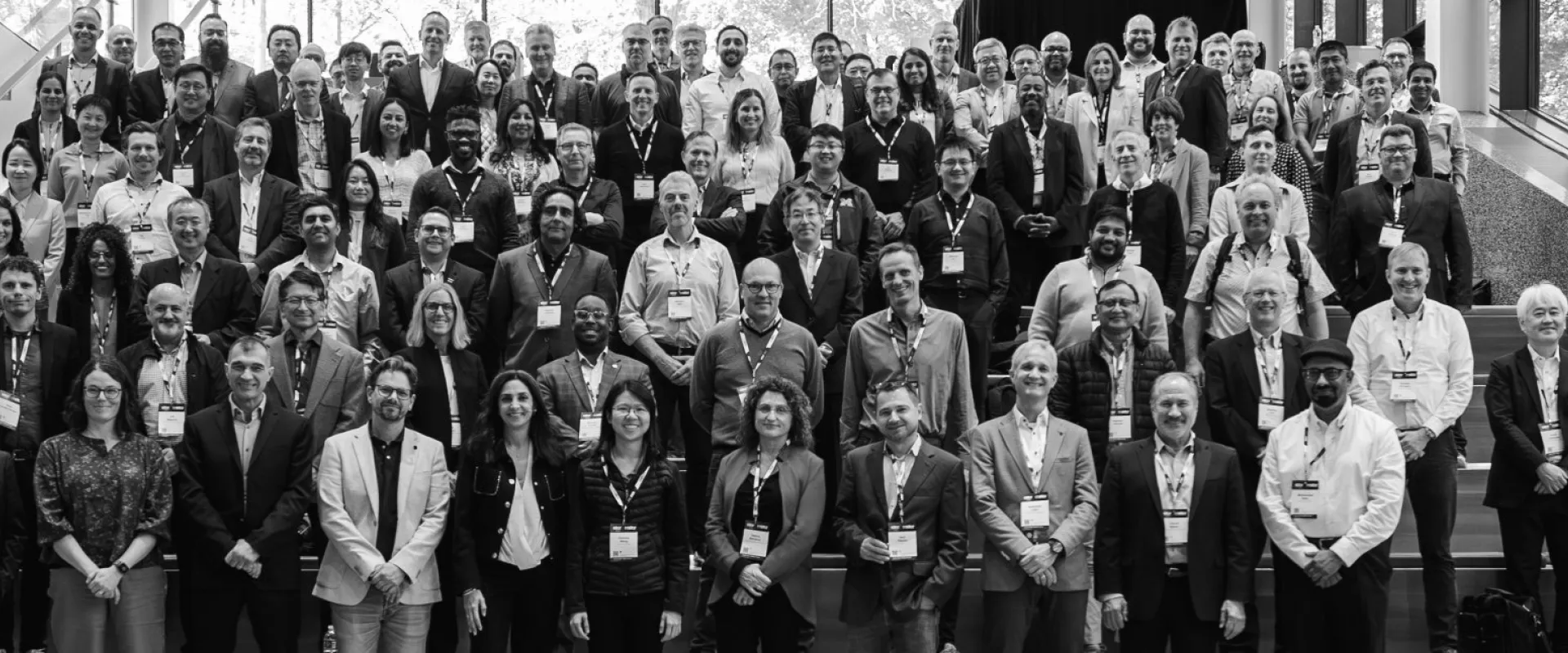
4th Automotive Chiplet Forum in Ann Arbor, Michigan, marks major milestones
The fourth edition of the Automotive Chiplet Forum (ACF) took place on October 10-11 at KLA Corporation in Ann Arbor, gathering a global audience from the United States, Europe, Taiwan, and Japan. Previously known as imec’s Automotive Chiplet Alliance (ACA), the forum brought together industry leaders to inform participants of key automotive technologies, collaborate on the future of chiplet architectures in automotive, and connect the automotive ecosystem.
Participants came from all corners of the automotive ecosystem – including OEMs, Tier 1 and Tier 2 suppliers, IDMs, and key innovators - joining keynote presentations and deep technical discussions addressing multi-die solutions, standardization, and the transition towards chiplet-based architectures.
Research collaboration
Imec announced the Automotive Chiplet Program (ACP), bringing together key stakeholders from the automotive industry in a pre-competitive effort to evaluate chiplet architectures and packaging technologies. The ACP was launched with strong momentum from ten initial partners: Arm, ASE, BMW Group, Bosch, Cadence, Siemens, SiliconAuto, Synopsys, Tenstorrent, and Valeo.
Part of imec’s ACP is executed in the United States through a research collaboration with the University of Michigan. With support from the State of Michigan, imec is establishing an office in Ann Arbor to facilitate closer partnerships with the University’s researchers and the local ecosystem, and to catalyze local talent development. Imec is rapidly staffing this center with researchers, with a site leader and additional staff in place.
As the automotive industry faces increasing performance demands and the limits of traditional scaling, the shift towards chiplet architecture is becoming essential. Bart Placklé, VP of Automotive at imec, emphasized this transformation: “The future of chiplet architecture in automotive is not just a possibility—it is an inevitability. As performance demands escalate and traditional scaling reaches its limits, disaggregating vehicle architecture becomes essential. The transition to chiplets will create an array of opportunities for both new and existing players in the ecosystem, enabling customer specific optimization and differentiation.”
Placklé further highlighted the significance of collaboration within the industry, noting, “With key stakeholders officially joining the Automotive Chiplet Program, there is growing momentum to evaluate chiplet architectures and packaging technologies. By establishing strong standards for interoperability, validating chiplet interconnectivity, and ensuring architectural viability in automotives, we can unlock the true potential of chiplets, allowing for flexible, cost-effective solutions that enhance safety and user experience. The Automotive Chiplet Forum is uniting the ecosystem, paving the way for a new era of innovation in the automotive industry where diverse components can seamlessly integrate.”
Global network on automotive semiconductors
The forum served as the official launch of star (Semiconductor Talent and Technologies for Automotive Research), a global ecosystem coordinated by imec to unite experts from the automotive and semiconductor industries. Star aims to play a key role in promoting R&D collaboration, standardization, and workforce development to drive semiconductor solutions for the automotive sector. Going forward, the ACF will be hosted under star, along with additional forums and conferences that will address key areas of collaboration between automotive and semiconductor sectors, including sensing, power, and automotive AI.
Mstar (Michigan Semiconductor Talent Technologies for Automotive Research) is the U.S. chapter of star, embedded within the renowned Michigan automotive ecosystem dedicated to building on Michigan’s strong legacy and contributions to the automotive industry. Founding partners of mstar include General Motors, imec, KLA, the Michigan Economic Development Corporation (MEDC), the University of Michigan, and Washtenaw Community College.
The inauguration of mstar, connecting the Michigan and global automotive semiconductor ecosystems, highlights imec’s commitment to build on regional strengths to enable a better future through technology and collaboration.
To support this initiative, imec aims to expand its partner network in the local automotive ecosystem, accelerating innovation, and developing the workforce with a team in Michigan to drive regional advancement in automotive semiconductor innovation.
Membership of star or star+mstar is open to organizations interested in contributing to the automotive semiconductor ecosystem. Star members will receive invites for exclusive members-only events, such as future editions of the ACF, to connect with leading innovators from the automotive and semiconductor industries and gain access to curated updates and the latest developments happening in automotive semiconductors.
Joining mstar provides access to the region’s extensive expertise and a global network, helping build collaborations that drive advancements in automotive semiconductor technology. This access can help members with accelerated product development, enhanced R&D capabilities, and a competitive edge in a fast-evolving automotive landscape. The generous support of the State of Michigan has been instrumental in making research in this field possible.
Members can actively engage in the Michigan ecosystem through dedicated events, conferences, as well as gain access to relevant news and articles.
Future star events, including the ACF, will be available exclusively to star members. The next event will be hosted by Arm in Cambridge, UK.
Discover the benefits of becoming a star or star+mstar member.